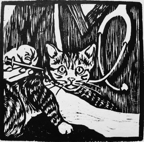Fighting for Accountability

In recent years, the field of veterinary medicine has become increasingly difficult to regulate. While veterinarians accused of malpractice can be punished or have their licenses revoked by the Ohio Veterinary Medical Licensing Board, such sanctions are rarely issued. If you choose to take your case to court, we will fight to get you the compensation and the justice that you deserve.
What is Veterinary Malpractice?
“Malpractice” is the term used commonly to describe a serious error by a medical practitioner. Under Ohio law, however, the proper and more accurate legal term is “veterinary negligence.”
Either way, the issue is whether the medical professional failed to meet the standard of care ordinarily expected from others in his or her profession. If your animal has suffered harm as a result of improper veterinary care, you may be entitled to damages for veterinary negligence.
Breach of Contract
By itself, a breach of contract by an animal care provider doesn’t always constitute an act of veterinary negligence. Regardless, it is still a violation of your trust as a consumer, and we strongly believe that the professionals entrusted with your animal’s care should be held accountable for their actions.
Breach of contract disputes are a relatively common occurrence in the animal care industry, and our attorneys are well-versed in bringing these claims to a satisfactory resolution. If you have received unsatisfactory treatment in violation of a boarding or veterinary service contract, we can help you seek justice for wrongful acts.
The Problem with Damages in Veterinary Malpractice Cases
The prevailing case law in Ohio holds generally that animals are items of personal property (like cars, toaster ovens, or lawn chairs) and damages for any loss of that property is limited to the market value of similar property (breed, physical condition, age, etc.). As such, there may be monetary value for animals that are used for show, breeding, or particularized training, such as guide dogs.
Unfortunately, while “ordinary” household pets have a high personal value, they often do not have a high market value and may not even have a market value at all. For example, a twelve-year-old, spayed, mixed-breed dog with cancer that you have had for many years has an increasingly high personal value as a member of your family. The cost to “replace” such a dog in the fair market is likely under $100. Thus, an aggrieved pet owner would likely only be able to recover that small market amount. In some cases, it is possible that a pet owner could recover veterinary fees.
The law does not generally recognize emotional distress for the loss of or harm to companion animals. Veterinary malpractice cases, while similar in theory to human malpractice cases, are not at all similar in terms of damages.
There is some support for the concept that damages for loss of an animal should NOT be strictly related to market value, and that any award should recognize the “value to the owner,” but this principle has not been widely applied or accepted in Ohio.
Animal welfare attorneys are still trying to get courts to recognize the unique value a pet has as an irreplaceable individual personality and member of one’s family. The bottom line is that most clients in a case like this must be prepared to spend more money in attorney’s fees than they will probably gain in a lawsuit. Most people who proceed with veterinary malpractice cases do so out of a strong belief in principle. They hope at a minimum to have the opportunity to make the veterinarian confront his/her errors in a manner that will hopefully prevent them from making the same mistakes again, to effect change in the law, or seek justice for their pet.

